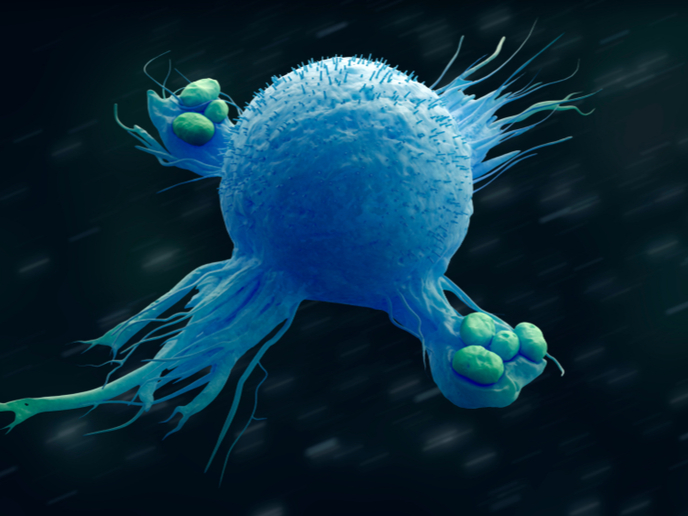Regenerative gene therapy for retinal degeneration
Age-related macular degeneration (AMD) is a chronic progressive condition that results from age-related alterations in the retina. There are two types of AMD: a slow-progressing, non-vascular form and a rapidly progressing, blinding form. In the latter, low levels of pigment epithelium-derived factor (PEDF), an inhibitor of vascularisation and potent neurotrophic factor, and high levels of vascular endothelial cell growth factor (VEGF), have been observed, leading to the invasion of the subretinal space by the choroidal vasculature and disruption of the retinal architecture. Current treatment consists of monthly injections of anti-VEGF antibodies or inhibitors to suppress neovascularisation. However, the high cost and low efficacy of this approach demands a viable therapeutic alternative. The partners of the EU-funded TARGETAMD(opens in new window) (Transposon-based, targeted ex vivo gene therapy to treat age-related macular degeneration (AMD)) project, propose to transplant GMP-grade genetically modified cells that overexpress PEDF in a First-In-Man clinical trial as a life-long therapeutic solution for AMD. The personalised procedure entails introduction of the human PEDF gene into autologous iris pigment epithelial cells ex vivo, and transplantation into the sub-retinal space of AMD patients. Introduction of the PEDF gene in cells will be mediated by the non-viral Sleeping Beauty transposon system that has the capacity to integrate into the host cell's genome. The transplanted cells will secrete the anti-angiogenic and neurotrophic factor in the subretinal space, which will inhibit the choroidal neovascularisation and regenerate the normal retinal architecture. Preclinical studies have shown consistency of production of a high quality Gene Therapy Medicinal Product and have demonstrated safety and efficacy of the approach in vivo in three species and models. Development and production of novel devices, reagents and plasmids have been successfully completed. In a recent Presubmission Meeting where the preclinical data was presented and discussed, the Swiss regulatory authority, Swissmedic, confirmed appropriateness of preclinical data toward the clinical trial. The TARGETAMD partners are confident that the major challenge of the procedure, which is associated with the small number of isolated cells, has been successfully overcome and are optimistic that the phase Ib/IIa clinical trial for the treatment of AMD using genetically modified autologous cells will transform AMD treatment.







